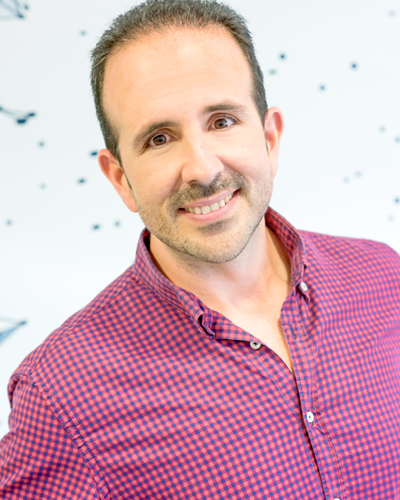IMDEA Networks

Defensa Tesis Doctoral: Towards Large-Scale and Collaborative Spectrum Monitoring Systems using IoT Devices

Roberto Calvo-Palomino, Estudiante de doctorado, IMDEA Networks Institute y Universidad Carlos II de Madrid
PhD Defense
The Electromagnetic (EM) spectrum is well regulated by frequency assignment authorities, national regulatory agencies and the International Communication Union (ITU). Nowadays more and more devices such as mobile phones and Internet-of-Things (IoT) sensors make use of wireless communication. Additionally we need a more efficient use and a better understanding of the EM space to allocate and manage efficiently all communications. Governments and telecommunication operators perform spectrum measurements using expensive and bulky equipments scheduling very specific and limited spectrum campaigns. However, this approach does not scale as it cannot allow to widely scan and analyze the spectrum 24/7 in real time due to the high cost of the large deployment. A pervasive deployment of spectrum sensors is required to solve this problem, allowing to monitor and analyze the EM radio waves in real time, across all possible frequencies, and physical locations.
This thesis presents ElectroSense, a crowdsourcing and collaborative system that enables large scale deployments using Internet-of-Things (IoT) spectrum sensors to collect EM spectrum data which is analyzed in a big data infrastructure. The ElectroSense platform seeks a more efficient, safe and reliable real-time monitoring of the EM space by improving the accessibility and the democratization of spectrum data for the scientific community, stakeholders and the general public. In this work, we first present the ElectroSense architecture, and the design challenges that must be faced to attract a large community of users and all potential stakeholders. It is envisioned that a large number of sensors deployed in ElectroSense will be at affordable cost, supported by more powerful spectrum sensors when possible. Although low-cost Radio Frequency (RF) sensors have an acceptable performance for measuring the EM spectrum, they present several drawbacks (e.g. frequency range, Analog-to-Digital Converter (ADC), maximum sampling rate, etc.) that can negatively affect the quality of collected spectrum data as well as the applications of interest for the community.
In order to counteract the above-mentioned limitations, we propose to exploit the fact that a dense network of spectrum sensors will be in range of the same transmitter(s). We envision to exploit this idea to enable smart collaborative algorithms among IoT RF sensors. In this thesis we identify the main research challenges to enable smart collaborative algorithms among low-cost RF sensors. We explore different crowdsourcing and collaborative scenarios where low-cost spectrum sensors work together in a distributed manner. First, we propose a fast and precise frequency offset estimation method for low-cost spectrum receivers that makes use of Long Term Evolution (LTE) signals broadcasted by the base stations. Second, we propose a novel, fast and precise Time-of-Arrival (ToA) estimation method for aircraft signals using low-cost IoT spectrum sensors that can achieve sub-nanosecond precision. Third, we propose a collaborative time division approach among sensors for sensing the spectrum in order to reduce the network uplink bandwidth for each spectrum sensor. By last, we present a methodology to enable the signal reconstruction in the backend. By multiplexing in frequency a certain number of non-coherent low-cost spectrum sensors, we are able to cover a signal bandwidth that would not otherwise be possible using a single receiver.
At the time of writing we are the first looking at the problem of collaborative signal reconstruction and decoding using In-phase & Quadrature (I/Q) data received from low-cost RF sensors. Our results reported in this thesis and obtained from the experiments made in real scenarios, suggest that it is feasible to enable collaborative spectrum monitoring strategies and signal decoding using commodity hardware as RF sensing sensors.
About Roberto Calvo-Palomino
Roberto Calvo-Palomino received his B.S and M.Sc degrees in Computer Science in Universidad Rey Juan Carlos and also received a M.Sc in Telematics Engineering in Universidad Carlos III of Madrid. He joined IMDEA Networks Institute in 2014 as PhD student. Before that, he also participated as a mentor in the Google Summer of Code program and he worked as researcher and project manager of European projects in Universidad Rey Juan Carlos. His main research is focused on building a smart crowd-sourcing platform for monitoring and decoding wideband spectrum collaboratively using IoT spectrum sensors, with the main-view of democratize the access and knowledge of the radio signals.
La defensa de tesis se realizará en inglés
Supervisor de tesis: Domenico Giustiniano, IMDEA Networks Institute, España
Universidad: Universidad Carlos III de Madrid, España
Programa de doctorado: Ingeniería Telemática
Miembros del tribunal:
- Presidente: Bozidar Radunovic, Microsoft Research, Reino Unido
- Secretario: Paolo Casari, IMDEA Networks Institute, España
- Portavoz: Francisco Escribano, Universidad de Alcalá, España
Más información
- Tesis doctoral: “Towards Large-Scale and Collaborative Spectrum Monitoring Systems using IoT Devices”
- Publicaciones de IMDEA Networks: Tesis
- Estudiantes de doctorado en IMDEA Networks
- Red de Alumni

